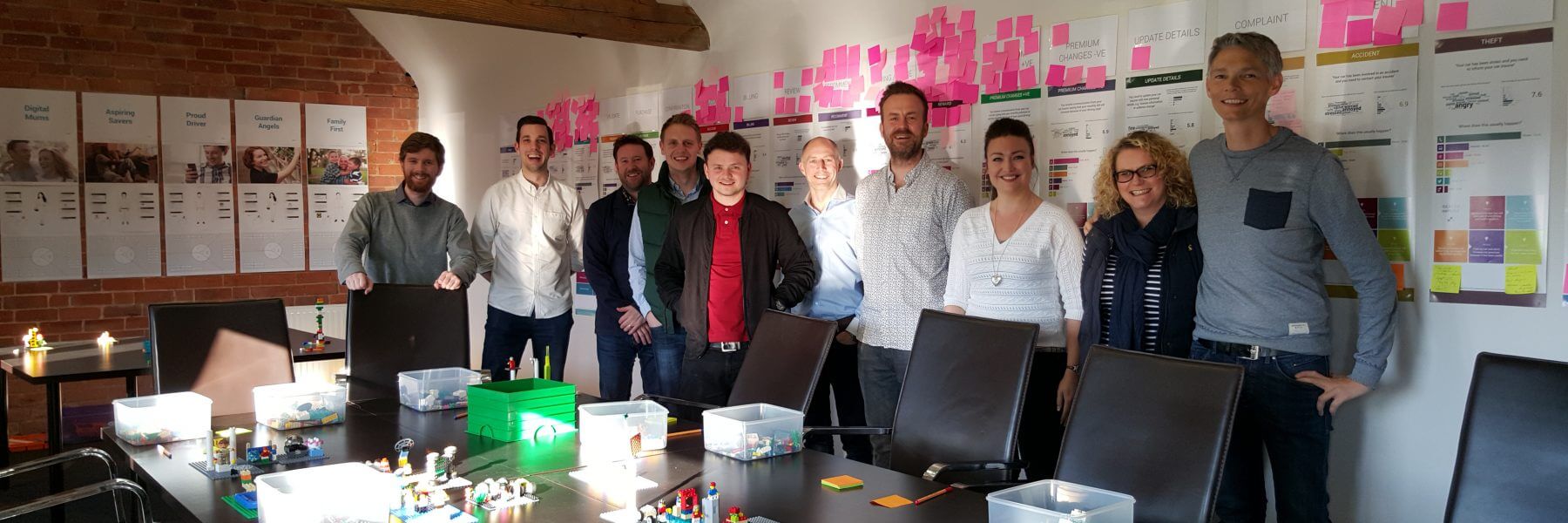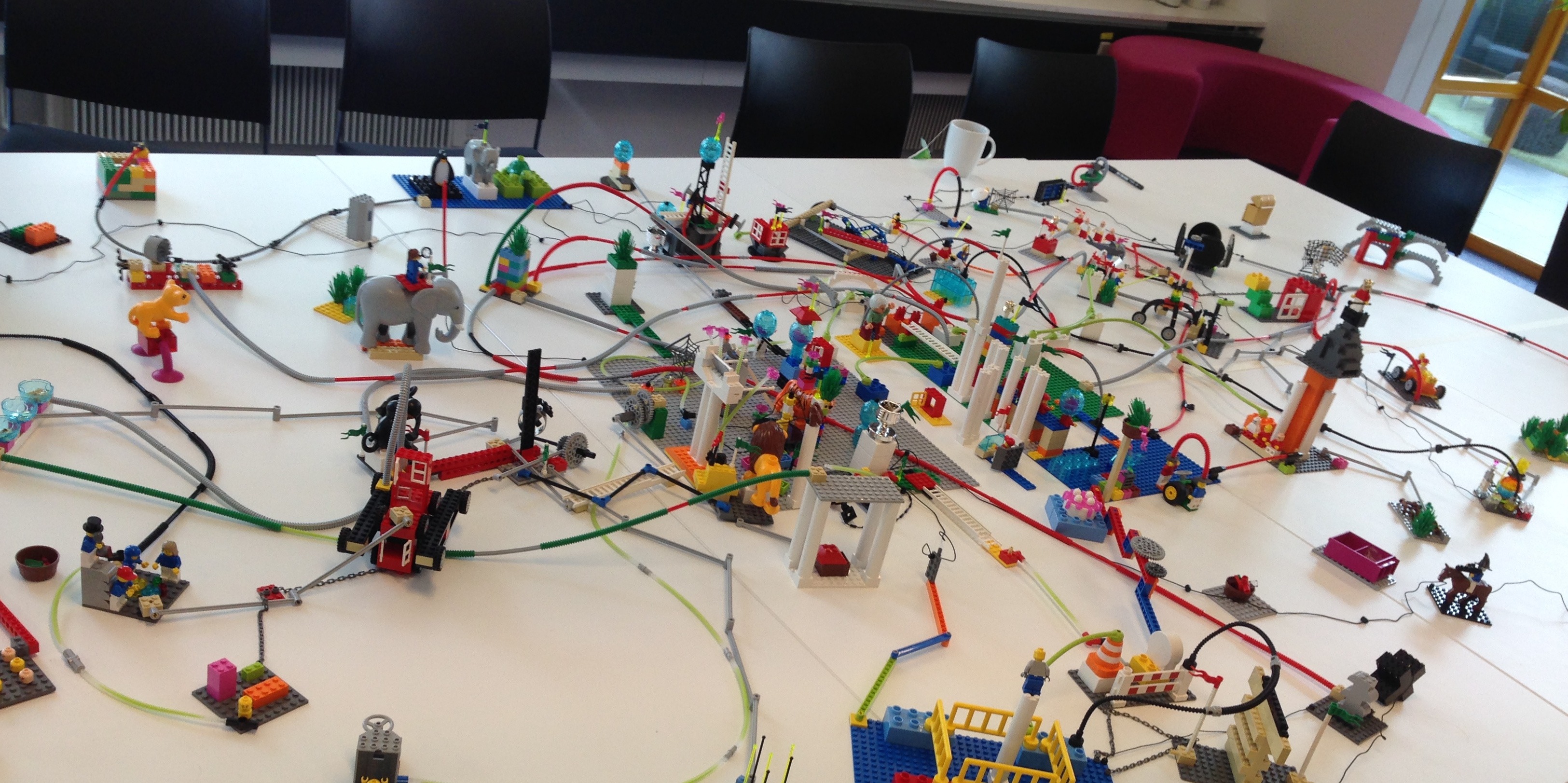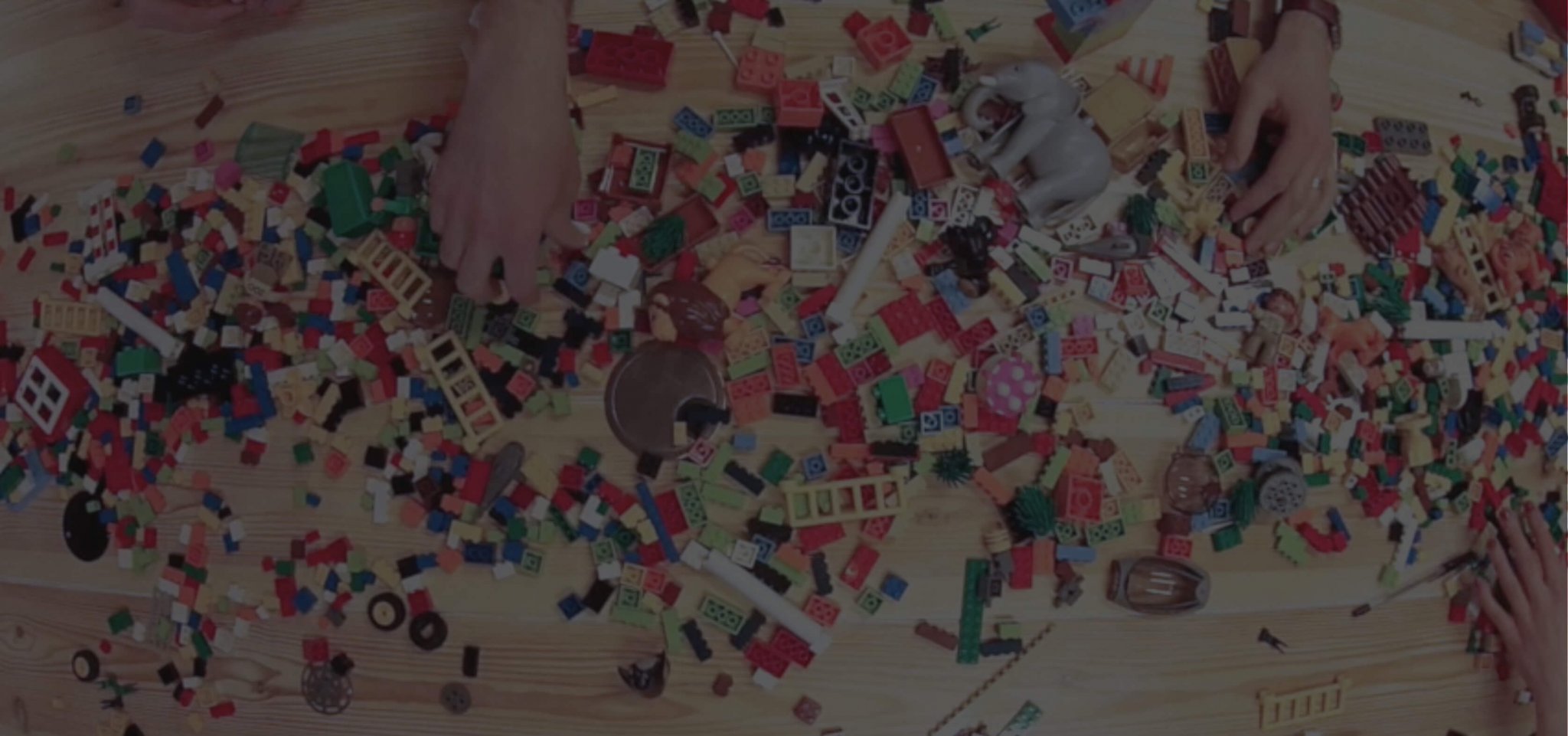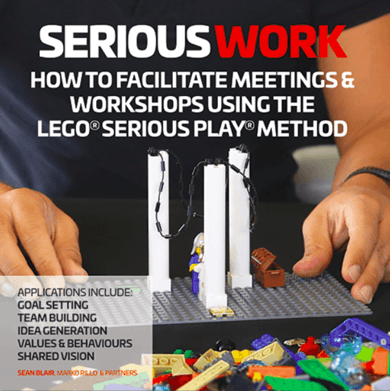Robin Hendricks wrote the following fun blog post about LEGO SERIOUS PLAY and its ability to solve business challenges.
Even in today’s digital world with smartphone-like tech toys targeted for kids aged two and up, you’d be hard pressed to find anyone who doesn’t have at least some first-hand experience with LEGO® building bricks.
From early learning DUPLO® bricks, basic brick buckets, MINDSTORMS® robotics, or any number of collector themed sets, the Danish-invented LEGO bricks have fascinated children and adults around the world since 1949 with their bright colors and endless connection, towering, and configuration possibilities. And, with revenue of $4.5 billion (US) in 2013, LEGO shows no signs of slowing down.
What is relatively unknown here in the United States, however, is that the value of learning with LEGO doesn’t end with childhood.
Improvement Leads to Innovation
In 1996, Swiss business professors Bart Victor and Johan Roos consulted with LEGO on internal performance management issues that led to what is now a studied and proven discipline in the field of organizational development used in dozens of countries and numerous Fortune 100 corporations around the world.
It’s a process grounded in adult learning theory, social science, and organizational learning referred to as LEGO® SERIOUS PLAY®. The process, similar to strategic planning, just happens to involve the use of LEGO® bricks rather than Post-it Notes and flipcharts. It is a
A thinking, communication, and problem solving technique for groups.
What is LEGO® SERIOUS PLAY®?
LEGO® SERIOUS PLAY® (LSP) is a group facilitation process used to help teams share ideas and assumptions, engage in dialogue and discussion, and work out meaningful solutions to shared problems. It’s a process that can be used to create and innovate as well as to problem solve and help business of all sizes get ‘unstuck’. Some of the most common uses for LSP include:
- Strategy Development
- Complex Problem Solving
- Team Building
- Leadership and Organizational Development
- Branding and Identity
- Planning and Execution
How Does LSP Work?
Certified facilitators plan LSP workshops based on business goals and prepare a series of LEGO building challenges for the group. During the workshop, the group progresses through the building challenges designed to unlock ideas, imagination, and solutions. The LEGO building challenges are designed to elicit 100% participation from 100% of the participants 100% during the entire workshop.
Unlike traditional workshops and most meetings where 20% of attendees contribute 80% of the discussion, LSP workshops are structured to engage all attendees. Without exception, everyone’s input and ideas are heard.
Why Does LSP Work?
LEGO® SERIOUS PLAY® is so immensely effective because the facilitator plans and conducts the intervention in a way that preserves these essential social triggers(1) of the participants so the team can instead focus on what they need to accomplish for the business.
- Status—Everyone is engaged and involved at the same level during the process
- Certainty—The process is clear and repeated; everyone knows what to expect
- Autonomy—Everyone is given clear options and has the ability to make choices
- Relatedness—Sharing is an essential part of the process; everyone is heard
- Fairness—Transparency, learning, and exploration are at the heart of the process
Kinesthetically, use of the hands to complete the building challenges adds additional benefit to the process:
- Neuro-stimulation—the hands are connected to 70-80% of our brain cells
- Use of both hands engages both sides of the brain—creative and analytical
- It reduces the temptation and use of meeting distractors like smartphones and tablets
The LSP process also makes use of evidence-based learning theories such as constructivism (Piaget) which states that we construct and rearrange knowledge based on what we already know and have experienced. It further demonstrates what Papert dubbed constructionism—if we create internal knowledge based on our interaction with the world, we can accelerate learning when we engage in building something external that holds meaning for us.
Certified LSP facilitators in the US, Canada, Europe, South America, and Latin America are helping organizations and teams of all kinds solve challenges and innovate. Currently, most of the LSP facilitation in the US takes place in large corporations, but it may not be long before you step on your next LEGO in your own board or conference room.
About the Authors
William Freitas and Robin Hendricks are Co-founders of LogicPlay, LLC, a Sarasota, FL based performance management firm that specializes in LEGO® SERIOUS PLAY, training, coaching, and group facilitation. For more information, visit www.logicplay.us
1. Rock, D (2008). SCARF: a brain-based model for collaborating with and influencing others, NeuroLeadership Journal.








 Become a LEGO Serious Play facilitator - check one of the upcoming training events!
Become a LEGO Serious Play facilitator - check one of the upcoming training events!